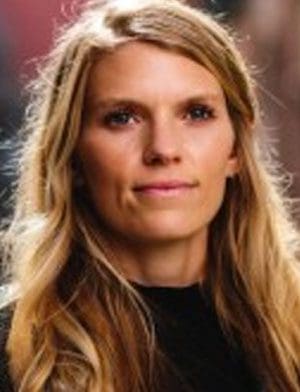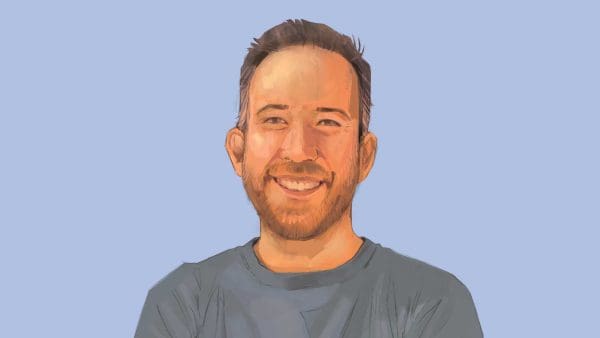
Alyson Friedensohn ’12 knows that we live in an era of buzzing techno-gnats—machines designed to steal our attention and make us feel out of control. She understands that the social media sites many of us visit on our devices often turn us blue and that our electronic leashes can make us feel tied to our jobs 24/7, creating stress and anxiety.
“It’s clear that these devices have some impact on our mental health,” says Friedensohn. “There may come a time when the pace of development for these devices slows down, simply because they are too harmful to people’s mental health.”
Beyond that, the nation’s suicide and opioid addiction rates have burgeoned, signs that mental health needs overall are not being met.
Friedensohn has developed a solution, one with a touch of irony: Yes, she has developed an app for that.
Modern Health, the company Friedensohn co-founded in 2017, provides a mental health well-being platform that uses iOS and Android apps and the internet to connect employees of member companies with mental health professionals and self-help programs. The platform does more than repurpose smartphones as devices for health. Modern Health’s goal is to make seeking out mental health support of all kinds less worrisome and stigmatizing. By offering participants a well-stocked roster of mental health providers who can be accessed virtually, Modern Health solves a pervasive problem in areas with limited numbers of mental health professionals.
“We’re trying to make mental health more accessible and more engaging to the entire population,” Friedensohn says. In a little over two years, the San Francisco–based company has taken off.
“At some point, the term ‘mental health’ will come to mean ‘health,’” she says. “In reality, the two are inseparable.”
Alyson Friedensohn
Modern Health links employees from member companies to a range of services. Participants go through a triage process that determines whether they are in need of immediate therapeutic help or whether they report some mental distress that can be handled via the intervention of a life coach. Other participants may be in strong emotional shape but are in search of ways to stay on top of their emotional health.
Employees can sign up for one of three “buckets”—one offers clinical referrals for those who need it, another offers life coaching to people without a clinical need but who are experiencing moderate levels of anxiety or stress, and a third features self-guided digital content, such as meditation instructions or evidence-based courses that aim to enhance mental health. Participants are guaranteed privacy. Their employer will never know which employee signs up for which service.
The advantages to employers are clear, Friedensohn says. Employees will be in better emotional shape, possibly making them more productive and less likely to use sick days. Member companies can offer employees a health program that can also lower the cost employers pay for mental health insurance or individual claims.
The idea for the platform germinated during Friedensohn’s tutelage at several health tech companies, but its seed was planted when she was a Hopkins undergrad. The daughter of physicians, Friedensohn thought she’d become a doctor. Even as a major in what was then called global environmental change and sustainability at the Krieger School, she focused on aspects of health and nutrition, including the scope of Baltimore’s food deserts.
A student athlete at her high school and then at Johns Hopkins, where she played on the lacrosse team, Friedensohn noticed how improper nutrition and mental health issues affected her teammates.
These days, Modern Health’s own well-being has taken a sharp turn for the better. The company has grown by a factor of 20 in the past year while drawing in $42 million in investment.
Around 60 companies, organizations, and universities—including some heavy hitters such as Pixar, Twitter, and Electronic Arts—have signed up. Modern’s Health staff, now at 40, is expected to double by the end of 2020.
Friedensohn sees the platform as a bellwether for an emerging view, one that centers on the primacy of the mind.




